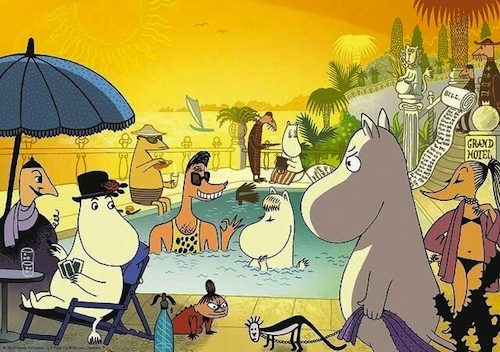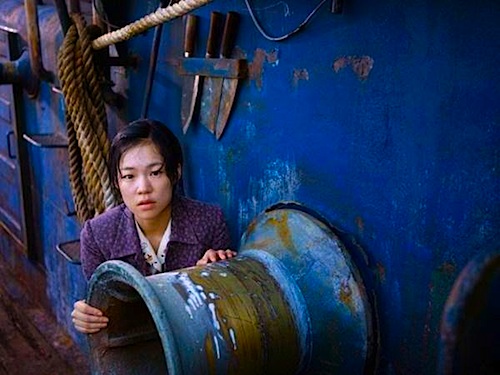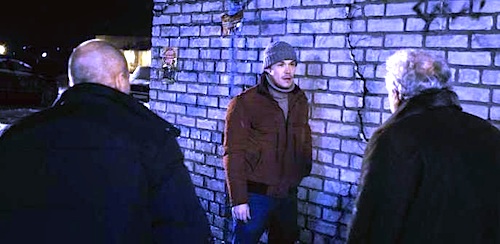By Joe Bendel. With grace and naiveté, the oblivious Moomins face the perils of pirates and French snobbery. Naturally, the pirates are much more pleasant to deal with. Nevertheless, some of the Moomins will rather enjoy living the high life in the south of France, at least until the bills come due in Xavier Picard’s Moomins on the Riviera, which screens during the 2015 New York International Children’s Film Festival.
In the film, Moominpappa says it straight out—they are not hippopotamuses. It is not clear just what they are, but they are clearly some sort of anthropomorphic animal. Already well known from Tove Jansson’s children’s book series, the Moomins made the transition to the funny pages, but they were abruptly canceled by a leftwing Finnish paper that found them too bourgeoisie. Subsequently, the comic strip was revived by a British syndicate. Eventually, the Moomins were adapted as a Japanese anime series, so they are quite well-established internationally, even though they never cracked the U.S. market. Still, there is no reason American kid will not appreciate a family of talking animals, ambiguous though their species might be.
All is pretty okay in the vaguely Northern European Moominvalley as the film opens. Young Moomin shyly pursues his flirty neighbor Snorkmaiden, when not out fishing with his friend Snufkin. When a pirate ship founders on the rocky shoals, the Moomins mobilize to salvage what they can. Of course, they gather up all the books and tropical seeds, neglecting the pirates’ treasure. Largely on impulse, the Moomins and Snorkmaiden soon set off on a nautical expedition of their own, rather irresponsibly sailing into a white squall. After a brief detour, the Moomins land on the Riviera, which the star-struck Snorkmaiden has always dreamed of visiting. She and Moominpappa soon fall in with the moneyed smart set, but Moomin and Moominmamma are uncomfortable with the shallow, indulgent lifestyle.

The animation of Picard’s Moomins is nowhere near as lush as a Studio Ghibli release or the work of GKIDS associated filmmakers like Tomm Moore or Michel Ocelot, but that is somewhat by design. The new Moomins feature deliberately evokes the feel of the vintage comic strip. In fact, that clean look is appealingly classy and well-suited to the Riviera backdrop.
Although Picard and a battery of four co-screenwriters faithfully adapted a story arc from the original newspaper strips, the film’s narrative is not exactly earth-shaking stuff. However, there are a lot of clever bits of business thrown in for seasoning. Moomin is also a decent sort of chap and the be-true-to-yourself-and-beware-of-phonies message should appeal to parents.
Despite skewing towards younger audiences, Riviera has a sophisticated vibe older viewers will appreciate. Considering it recently set the Finland record for two-week box office gross, it is probably safe to assume there will be more Moomins to come. Pleasantly upbeat and life affirming, Moomins on the Riviera is recommended for kids 5-10 (as per the festival’s guidelines) and animation fans who will enjoy its gentle quirks. It screens again this Sunday (3/22) at the IFC Center, as part of this year’s NYICFF.
LFM GRADE: B-
Posted on March 22nd, 2015 at 1:16pm.




